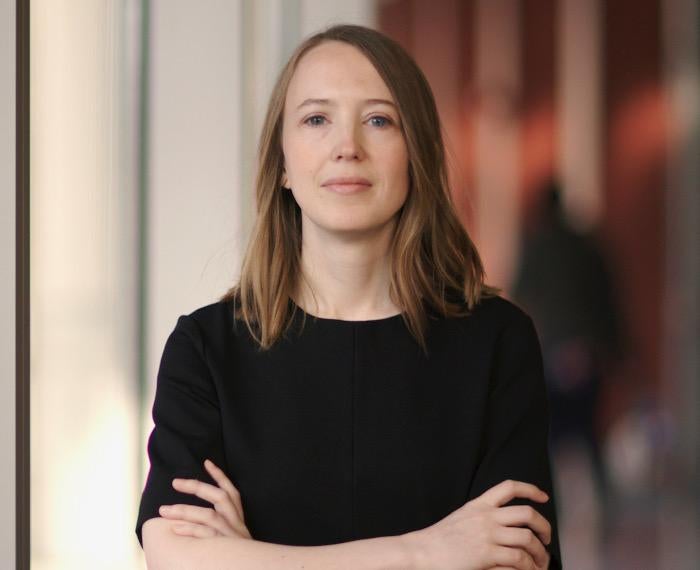
Subscribe to Pittwire Today
Get the most interesting and important stories from the University of Pittsburgh.This Pitt program is leveling up the gene therapy workforce in Pittsburgh

Last week, the National Academy of Inventors named Pitt School of Medicine Assistant Professor Leah Byrne a new senior member for her pioneering work in gene therapy to restore vision. Along with her lab’s work developing viral vectors for retinal disease, Byrne has 12 patents to her name and runs her own company, Avista Therapeutics, focused on gene therapy for retinal degeneration.
But Byrne’s inventiveness doesn’t stop at her own research. She’s also the architect of a summer program that provides students with opportunities to learn gene therapy techniques and meet with experts from both industry and academia, with the goal of building the life sciences workforce in Pittsburgh.
“In the past couple of decades, it’s been shown that gene therapy has huge promise for treating diseases that up to now have had no treatment or cure whatsoever,” said Byrne. “And to accomplish this kind of research, it takes a very interdisciplinary, collaborative team.”
The program had its genesis in Byrne’s lab. Seeing a need for her group to work together more effectively, she developed a boot camp for her trainees to ensure researchers with different backgrounds — bioengineers, geneticists, surgeons and more — understood the techniques that are the basis for the lab’s research in gene therapy, a discipline of medicine that uses genetic material to treat diseases.
After seeing how much interest her students had in the program, she decided to open it up to those outside of her own group and outside of Pitt. That became the Pittsburgh Gene Therapy Bootcamp (PGTB), which launched last year with 14 multidisciplinary graduate student attendees from Pitt and Carnegie Mellon University.
In the boot camp, students learned how to deliver gene therapies with viruses and how to use the powerful CRISPR-Cas9 tool to edit the genomes of bacteria, among other important lab techniques. They also tested the effectiveness of different viruses to deliver therapies in different body tissues. The group is now preparing those results for possible publication.
For Mishal Rao, a fifth-year PhD student in the School of Medicine’s Integrative Systems Biology program, it was the other components of the boot camp — talks by gene therapy pioneers and opportunities to shadow those working in the field — that expanded her perspective the most.
“The best part was that all the speakers were very forthcoming,” Rao said. “If I wanted to have an informational interview or network, people were very open.”
Rao uses viral vectors in her own work, so she joined the boot camp to learn more about the techniques and approaches that make her research possible. She said she enjoyed the chance to learn more about techniques, especially on the computational side of the discipline, but even more found value in being able to network, hear from those involved in gene therapy and shadow employees at Avista and Bluesphere Bio, another Pittsburgh biotechnology company.
“It was a very cool opportunity, which I don’t know if I would otherwise have gotten,” Rao said. “It was all very eye opening.”
Making those connections and leveling up the workforce is critical in Pittsburgh, said Byrne, as there’s an increasing demand for trained workers in the region.
“The gene therapy ecosystem in Pittsburgh is really growing right now. There’s just a lot of momentum and promise for gene therapy right here in Pittsburgh,” she said.
One marker of that growth is BioForge, a biomanufacturing facility Pitt is building in partnership with ElevateBio, which will provide homegrown therapeutics for research and clinical trials. In future cohorts, Byrne hopes to expand the boot camp in both its geographic scope and its focus on different career stages — including not just graduate students and postdoctoral fellows but technicians, consultants and a variety of other roles.
“Eventually we’d love to build this into a nationwide or maybe even a global program,” Byrne said. “It’s really crucial [for our field] that we have folks that are interested in all types of different jobs in the gene therapy space.”
— Patrick Monahan

